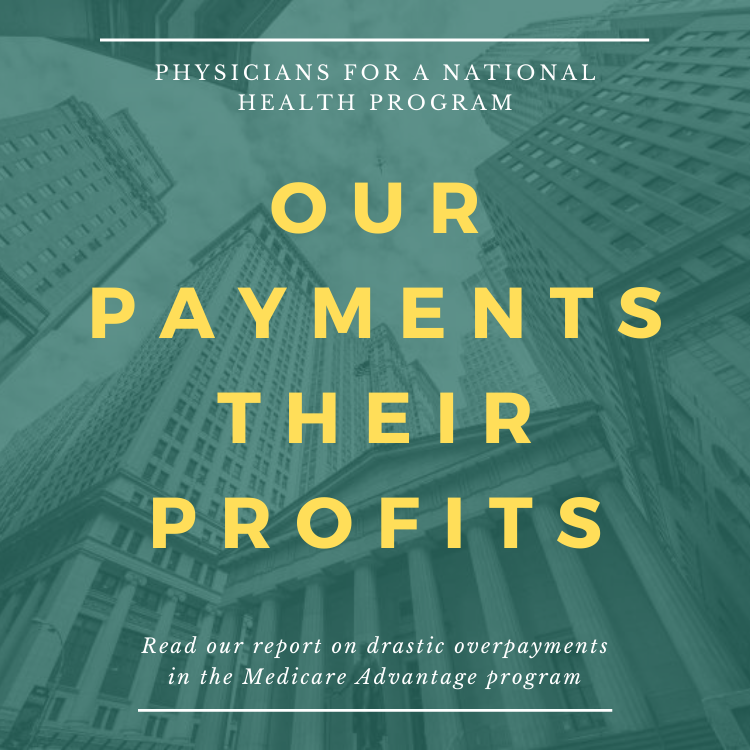By Philip Caper, M.D.
Bangor (Maine) Daily News, March 19, 2015
A clash of cultures is rapidly developing among those of us who see the mission of the health care system to be primarily the diagnosis and healing of illness and those who see it primarily as an opportunity to create personal wealth.
The concept of health care primarily as a business is uniquely American, and it has gained ascendancy during the last few decades. While there have always been a few greedy doctors, businessmen-wealth-seekers — not doctors — now dominate the medical-industrial complex. They include for-profit insurance, medical device and pharmaceutical companies as well as for-profit and nonprofit corporate providers of health care services, such as the three large hospital systems in Maine.
Partly because of the Affordable Care Act, they also include a rapidly growing army of lawyers, consultants and policy wonks who are creating lucrative businesses helping hapless “consumers” — formerly “patients” — “navigate” their way through the grotesquely byzantine maze our health care system has become.
This shift in emphasis from patient care to money profoundly has affected the practice of medicine and resulted in the clash of cultures within health care. As increasing numbers of “providers” — formerly “doctors” — become employees of large health care corporations — formerly community hospitals — we have come under increasing pressure to diagnose profitable diseases and order profitable tests and procedures without enough regard to the benefits or harm accruing to patients. Hospital “CEOs” — formerly “administrators” — trained in the ethics and practices of business rather than health care are incentivized to configure their “product lines” — formerly “services” — to produce the largest “profits” — formerly “margins.”
Those of us in the health care “business” — formerly “profession” — have been slow to react to this hijacking of our health care calling. Patients, despite sensing something is deeply wrong, feel helpless to push back. That now seems to be changing.
For the past three years The Lown Institute, founded by Dr. Bernard Lown, renowned cardiologist and advocate for universal health care, has held conferences designed to point out the growing problem of overtreatment in medicine. Recently they also have turned their attention to the equally disturbing problem of impaired access to health care and undertreatment. They now advocate for RightCare — not too much treatment and not too little.
Arguably some of the most important effects of Obamacare have been the destabilization of our deeply dysfunctional health care system and an order-of-magnitude increase in the amount of attention given to its dysfunction by the media and the public. Elisabeth Rosenthal’s excellent New York Times series “Paying Till It Hurts” and Steven Brill’s Time magazine cover story and book titled “America’s Bitter Pill” are two of the most recent examples. These two factors have created an opportunity for real structural and cultural change.
There are many advocacy groups — Physicians for a National Health Program, HealthCare-NOW, Maine AllCare — trying to highlight these issues and to propose ways to turn this runaway train around.
While they are necessary, attempts at education and persuasion are not sufficient. Unlike past human rights movements, such as women’s suffrage and marriage equality, the fight for the right to health care for all Americans will require redirecting huge sums of money away from deeply entrenched, profit-oriented private corporations to not-for-profit programs that directly promote the public’s health and well-being.
The Institute of Medicine estimates that the convoluted American health care system wastes $750 billion per year in inefficiency and fraud, unnecessary administrative complexity and medical services, unjustifiably high prices and missed prevention opportunities. That waste creates a lot of jobs but does not pay for one Band-Aid or aspirin.
I attended the latest Lown conference, held last week in San Diego, to talk about the “Heal-In” held at Boston City Hospital in 1967 as an example of direct action taken by doctors, nurses and other healers to achieve a political goal without compromising patient care. The capstone of the conference was to announce the expansion of Lown’s mission, previously focused on education and discussion, to include creation of a national grassroots movement that will include direct action. Their first foray will be called RightCare Action week and is scheduled for the fall. Stay tuned.
Changing our health care system is as much about persuasion through power as it is about the power of persuasion. We as patients have power through the ballot box, and we as health care workers have power through our key roles in the “business” of health care to return and redirect its mission toward healing and away from its increasingly singular obsession with profitability.
All we have to do is summon the will and the courage to exercise that power.
Physician Philip Caper of Brooklin is a founding board member of Maine AllCare, a nonpartisan, nonprofit group committed to making health care in Maine universal, accessible and affordable for all. He can be reached at pcpcaper21@gmail.com or through his website at philcaper.net.
